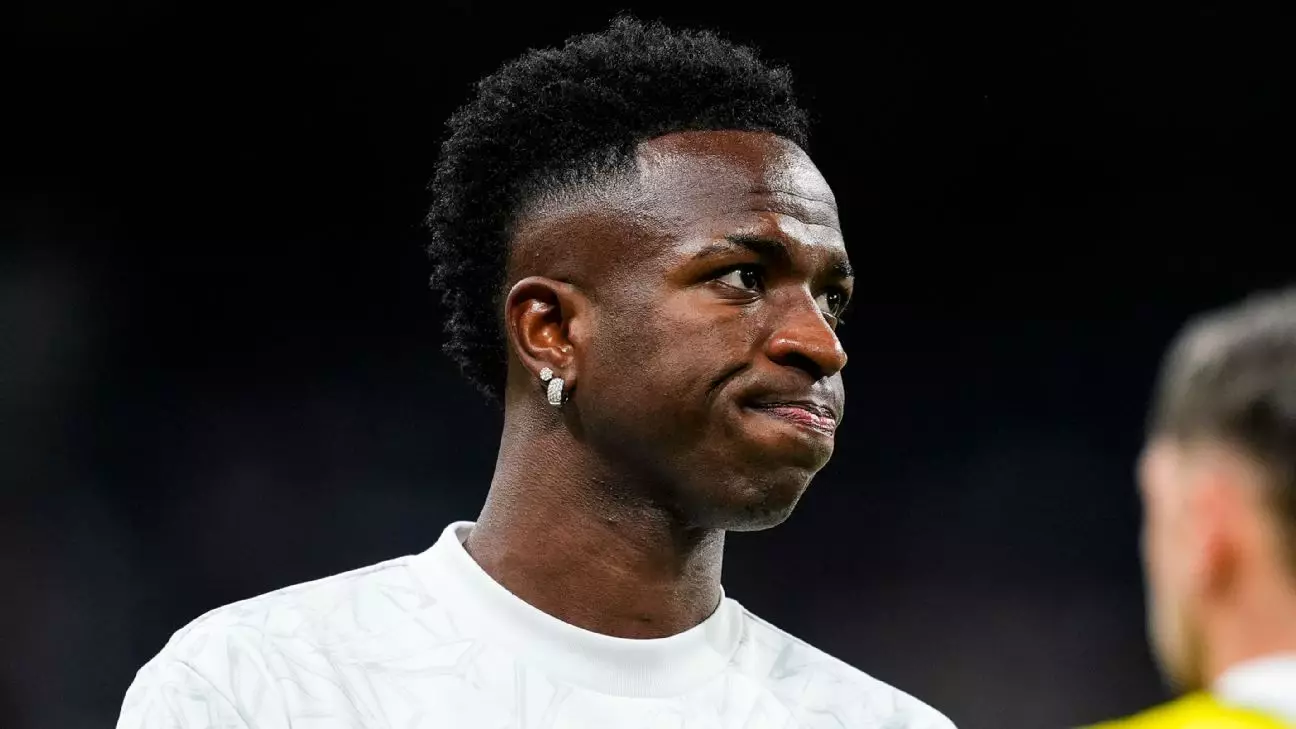This year’s Ballon d’Or ceremony is set to take place against the backdrop of unexpected decisions from some of football’s elite players, notably Vinícius Júnior and his Real Madrid teammates. Reports indicate that they will not be making the trip to Paris for the prestigious event, primarily due to their belief that Manchester City midfielder Rodri is poised to take home the coveted award. This decision raises speculation about the transparency and fairness surrounding such awards, especially when a player like Vinícius, who enjoyed a stellar season, feels overlooked.
Last season marked a significant milestone for Vinícius Júnior and Real Madrid, culminating in a remarkable LaLiga and Champions League double. With 15 goals in LaLiga and six in the Champions League—including key strikes against formidable opponents such as Bayern Munich and Borussia Dortmund—his performance was nothing short of spectacular. These achievements positioned him as one of the frontrunners for the 2024 men’s Ballon d’Or, making the decision to boycott the ceremony particularly poignant. Perhaps realizing that he would be overshadowed by Rodri’s contributions to Manchester City, which include their successful Premier League campaign and his pivotal role in Spain’s Euro 2024 triumph, Vinícius and his teammates made a bold statement by staying away from the ceremony.
The sentiment among the Madrid camp reflects a broader discontent with what they perceive as injustices in football accolades. Statements from within the club have branded the situation as “unfair” and “a disgrace,” highlighting a growing disillusionment with the award’s evaluative criteria. This sort of protest could be seen not just as a refusal to participate in a ceremony, but as an emblem of pride for players like Vinícius who feel that their hard work and achievements are being underappreciated. The decision to abstain from the event underscores a powerful narrative about players taking a stand against a perceived bias in the voting processes that govern these awards.
Vinícius Júnior had the opportunity to etch his name in history as the first Brazilian to win the men’s Ballon d’Or since Kaká in 2007. Such a milestone would not only have been personally gratifying for him but would also have highlighted the global influence of Brazilian football. Instead, with Lionel Messi having taken the spotlight again, and with the impending success of Rodri, the future recognition for exceptional players may continue to be mired in controversy.
As football transitions into a new era, the discussions surrounding awards like the Ballon d’Or will undoubtedly re-emerge, influenced by the startling absence of notable talents. The drama unraveling at this year’s ceremony is a testament to the ongoing debate about merit, recognition, and the criteria used to judge greatness in the sport. As fans, players, and analysts continue to dissect these developments, one thing remains clear: the conversation surrounding football accolades is as dynamic and complex as the sport itself.

